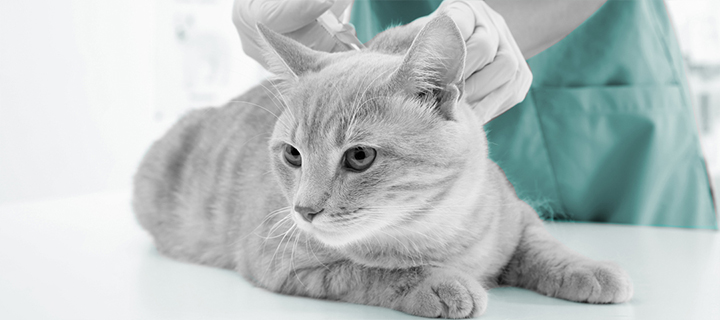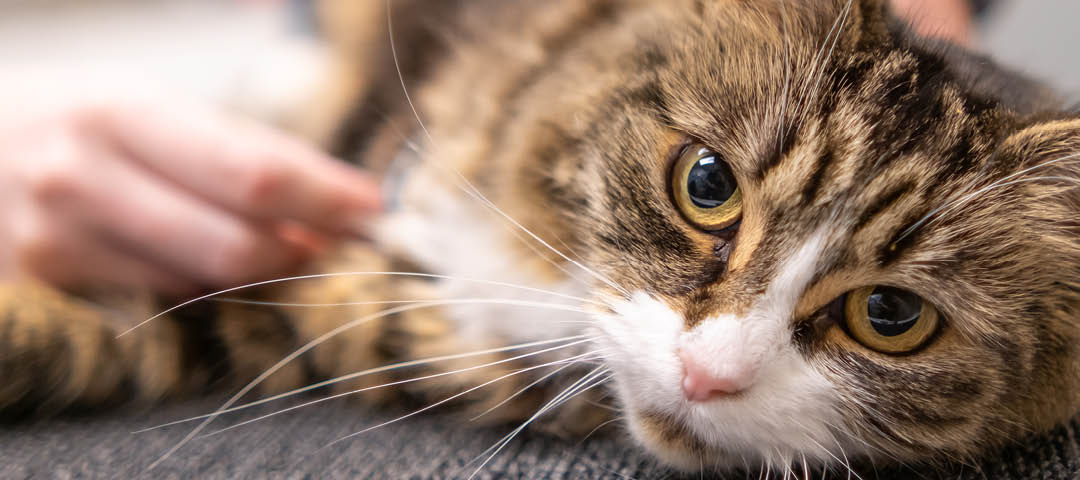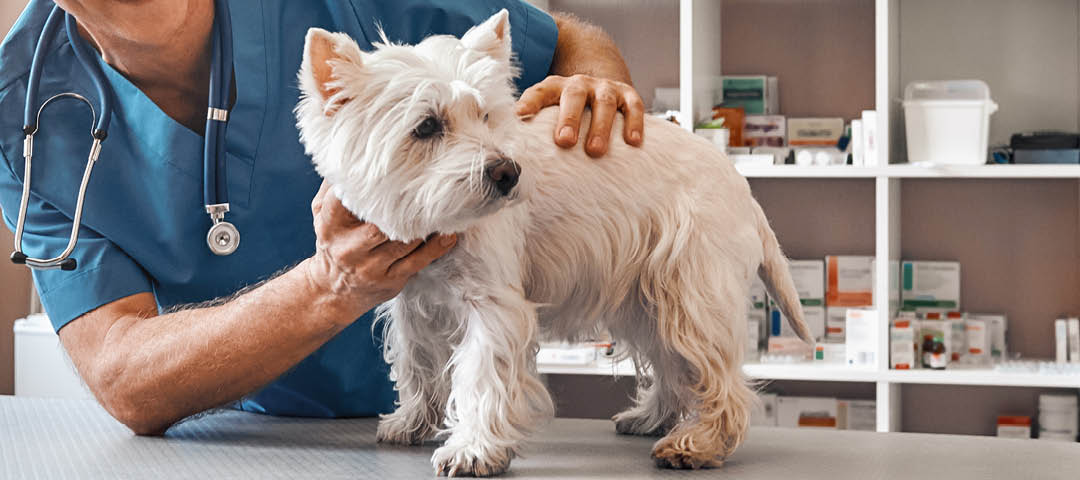
Pet Vaccination

Vaccinations and your pet
Our pets are part of our family, and just like any family member, we want them to be healthy and happy throughout their lives.
Vaccinations are an important way we can protect our pets from many serious, life-threatening diseases.
During your pet’s vaccination appointment, your veterinarian will discuss an individualised preventative health care programme with you, which will include appropriate vaccinations for your pet’s lifestyle and health needs.
To find out more about vaccinations for your pet, read through our Frequently Asked Questions below:

Frequently Asked Questions:
Why should my pet get vaccinated?
All pets that have contact with other cats and dogs, or frequent areas where other pets have been are at risk of contracting infectious diseases. Many of these diseases are caused by viruses, for which there is often no specific treatment. Affected animals can end up hospitalised and needing intensive care for long periods of time, which can cost a lot. In some cases, despite the best treatment, animals die from these diseases.
Vaccination is the best way of protecting your pet from becoming seriously ill if they are exposedto an infected animal or contaminated environment. Vaccine boosters keep your pet’s defences ready to respond when disease exposure happens. It is important these are kept up-to-date so that your pet stays protected.
When should I get my pet vaccinated?
Initial vaccinations start from 6-8 weeks old in kittens and puppies. They will need booster vaccinations every 2-4 weeks after then, until at least 16 weeks old. There will be a follow-up booster at 6 months old, then every 1-3 years according to your pet's vaccination requirements. Your veterinarian will discuss the schedule for subsequent vaccines to keep your pet protected according to your pet’s age, lifestyle and areas your pet is likely to visit. Your veterinarian will also discuss with you when the best time is to start socialising your puppy.
Rabbits can be vaccinated from 10 weeks old, then every 12 months ongoing.
At the vaccination appointment your veterinarian will also review your pet’s medical history and perform a thorough full body check-up before the vaccinations are given.
What diseases do the vaccines cover?
New Zealand dogs are vaccinated against the following (given in one injection) as a minimum:
- Parvovirus (Parvo)
- Canine distemper (Hard pad disease)
- Canine adenoviruses (Infectious canine hepatitis)
- Canine parainfluenza virus
There are also other vaccines that may be appropriate for your dog, depending on their lifestyle:
- Canine/kennel cough
- Leptospirosis
Read more about these dog diseases here.
Cats in New Zealand are vaccinated against the following (given in one injection) as a minimum:
- Feline Parvovirus/panleukopenia
- Feline herpesvirus
- Feline calicivirus
Read more about these cat diseases here.
There is also a vaccine available for rabbits which provides protection against Rabbit haemorrhagic disease (Rabbit calicivirus).
Are there any risks or side effects associated with pet vaccinations?
Most pets cope well with their vaccinations and continue their lives as normal. Occasionally the site of vaccination can be a bit tender for 24 hours, or your pet may not seem quite themselves. Some puppies and kittens may be a little sleepier for the following 24 hours, or not at all! Reactions to vaccinations are very rare in pets.
If you do have any concerns about your pet’s health or behaviour after a vaccination, contact your veterinary clinic for further advice.
How long after being vaccinated is my pet protected?
Your pet will be considered fully vaccinated 10-14 days after their final vaccine has been given. This is important to remember when you are taking your puppy out for the first time, or you are organising your holidays. If you are likely to be boarding your pet when you are away, check the vaccination requirements of the facility you will be using. Some places will require your pet to have had their vaccination at least 2-4 weeks before boarding.
Keeping their protection up-to-date through booster vaccinations is vital for ensuring your pet stays protected throughout their life.
Can my pet still get sick even if they are vaccinated?
Vaccines are highly effective at protecting pets from getting very ill with the disease they have been vaccinated against. For pets that have had a large exposure to the disease, being vaccinated can be lifesaving and will help them to have a much milder version of the illness than those who are unvaccinated.
Is it necessary to vaccinate indoor pets?
It is recommended that all pets receive a full primary course of vaccinations to provide a base level of protection. Many animals in New Zealand will leave the house at some point, whether they are needing to go into a boarding situation or a visit to the vets, or a pet visitor comes into the house, so keeping up their protection is important. Your veterinarian will discuss the ideal vaccine schedule with you at your pet’s health check which will take your pet’s lifestyle into consideration.
How do you know if a pet is up-to-date with their vaccinations?
When your pet has received their vaccination, you will be given a vaccine record/booklet that contains details of the vaccines given, the date they were given and who gave them. It is important to keep this vaccine record in a safe place so that it is easily accessible. You will need to show your pet has been vaccinated if they are going to be boarding somewhere and bring it with you to your pet’s vaccination appointments so we can keep it updated. When you purchase or adopt a pet, these records should be provided to you by the previous owner.
Sometimes digital booklets are used, which you can access through https://www.myrover.co/sign-in We will also have the records kept on our computer systems in clinic after your visit, so if the booklet does go missing, give your local Animates Vetcare clinic a call.
Is it safe to vaccinate pets that are pregnant or nursing?
It is best to have pets fully vaccinated prior to pregnancy as many vaccines are not recommended for use during pregnancy or lactation. Your veterinarian will discuss options and a suitable schedule for your pet, taking your pet’s lifestyle and health into consideration.
Contact your local, knowledgeable Animates Vetcare clinic to discuss your pet’s specific vaccination requirements further.

